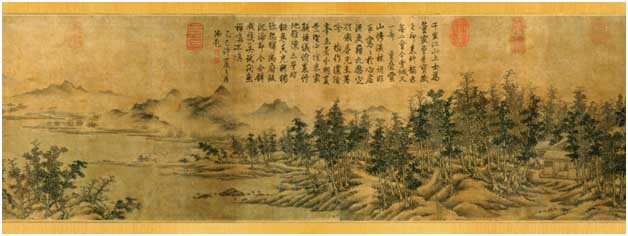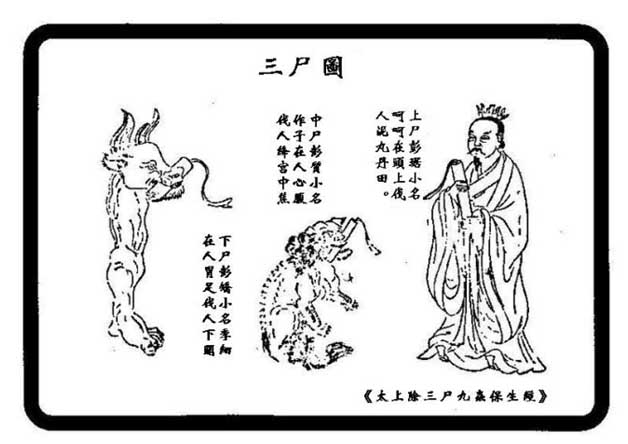The Taoist Approach to Nourishment
Understanding the Philosophical Foundation
To grasp the essence of the Taoist diet, one must first understand the fundamental principles of this ancient wisdom tradition. Taoism emerged from the heart of East Asian and Chinese culture, with roots extending back approximately 2,000 years. While its influence remained primarily regional for centuries, Taoist philosophy has increasingly spread to Western societies in recent times, particularly as people seek alternatives to materialism and deeper spiritual understanding.
Taoist practitioners embody qualities of egolessness and humility, placing special emphasis on compassion, modesty, and moderation. This commitment to moderation manifests clearly in their thoughtful, minimalist approach to eating and nourishment.
Harmony with Natural Principles
Although Taoists aren’t typically known as rule-breakers, their philosophy fundamentally questions rigid societal structures. Taoist thought centers on the human-nature connection, viewing artificial social constraints as potential barriers to natural harmony. Rather than adhering to rigid modern conventions, Taoist practitioners seek to align themselves with the natural rhythms and patterns of the universe.
The well-known Taoist concept of Yin and Yang—representing complementary energies that flow throughout existence—forms a central foundation for understanding dietary approaches. This balanced perspective recognizes that nutritional needs involve harmonizing opposing yet interdependent forces within the body.
Food as Medicine and Spiritual Practice
Within Taoist tradition, food serves multiple purposes beyond mere sustenance. Eating becomes both medicinal and spiritual—a practice for maintaining physical health while nurturing energetic balance. Rather than following strict dietary rules, Taoist nutrition focuses on understanding how different foods affect one’s unique energetic constitution.
This approach emphasizes seasonal eating, with diets shifting throughout the year to maintain harmony with natural cycles. Foods are understood not only for their physical properties but for their energetic qualities—whether they warm or cool the body, stimulate or calm the system, and how they influence vital energy (qi) circulation.
Key Principles of Taoist Nutrition
Moderation in All Things
Consistent with broader Taoist philosophy, dietary moderation represents a cornerstone principle. Overeating disrupts energetic balance and places unnecessary stress on bodily systems. Many Taoist practitioners eat until approximately 70-80% full, leaving room for efficient digestion and energy circulation.
Balancing Energy Through Food Selection
The concept of balancing Yin (cooling, passive) and Yang (warming, active) energies guides food choices. During hot summer months, cooling foods like fresh fruits and raw vegetables might predominate. In winter, warming foods such as root vegetables, whole grains, and moderate amounts of animal protein help maintain internal warmth and energy.
Natural, Minimally Processed Foods
Taoist nutrition naturally gravitates toward whole, unprocessed foods close to their natural state. This preference reflects the philosophy’s emphasis on naturalness and simplicity. Traditional preparations often involve simple cooking methods that preserve vital energies while enhancing digestibility.
Mindful Eating Practices
The way food is consumed matters as much as what is eaten. Taoist approaches encourage mindful eating—taking time to appreciate food’s appearance, aroma, and flavor while maintaining calm awareness during meals. This practice transforms eating from a mechanical process into a meditative activity that supports both physical and spiritual wellbeing.
Through these balanced, naturalistic approaches to nourishment, Taoist dietary wisdom offers valuable insights for modern nutrition—emphasizing harmony, awareness, and connection rather than rigid restrictions or complicated regimens.

The Wisdom of Simplicity: Understanding the Taoist Approach to Nourishment
Ancient Wisdom for Modern Life
The poetic passage at the beginning captures essential Taoist wisdom about sensory moderation:
The five colors blind eyes.
The five tones deafen ears.
The five tastes blur tongues.
Fast horses and breathtaking hunts make minds wild and crazy.
Things rare and expensive make people lose their way.
That’s why a sage tends to the belly, not the eye, always ignores that and chooses this.
This teaching reveals a profound understanding of how sensory overstimulation—whether through visual spectacle, overwhelming sounds, or excessive flavors—can actually diminish our capacity for genuine perception. The sage prioritizes inner nourishment over external stimulation, choosing what truly sustains rather than what merely dazzles.
The Evolution of Taoist Dietary Practices
Historically, Taoist dietary traditions emphasized fresh fruits and vegetables while limiting meat consumption. Interestingly, early practitioners avoided grains based on the belief that their digestion released harmful entities. This perspective reflects both practical health considerations and spiritual symbolism within its cultural context.
Over time, this approach evolved to incorporate whole grains alongside the traditional emphasis on fresh produce. This evolution demonstrates how Taoist practices adapt while maintaining core principles—balancing tradition with practical wisdom.
Natural Nourishment as Spiritual Practice
The fundamental Taoist principle of natural alignment guides dietary choices. The instruction to “eat only food” carries deeper meaning than it might initially suggest—it advises avoiding artificial substances, chemical additives, and heavily processed items that the body wasn’t designed to metabolize.
This perspective views heavily processed foods—those stripped of nutritional value like refined white flour and sugar—as essentially “non-foods” unfit for human consumption. The reasoning extends beyond mere health considerations to a philosophical position that humans function optimally when in harmony with natural systems.
Mythological Influences on Dietary Tradition
Taoist literature references “sagacious men of old”—mythical pre-historic figures who supposedly sustained themselves solely through breath, absorbing universal qi energy rather than consuming physical food. This practice, known as “Bigu,” exists primarily in hermetic traditions and mythology rather than as practical guidance for ordinary practitioners.
Modern Taoists recognize these stories as symbolic rather than literal instructions. The belief that humanity has evolved from this mythical state makes physical nourishment not only acceptable but necessary in contemporary practice.
The Three Worms and Grain Avoidance
Early Taoist texts provided specific reasons for avoiding grains, including concern about arousing the “Three Worms“—symbolic parasitic entities believed to dwell within the body. This concept may have integrated practical health observations with spiritual symbolism.
The origins of grain avoidance might reflect multiple influences—health considerations, reverence for a pre-agricultural past, or broader social factors. The minimalist explanation suggests Taoists live “off more than food alone,” drawing energy from cosmic sources beyond physical nourishment.
Through these diverse approaches to nourishment, Taoist dietary wisdom continues offering valuable insights—emphasizing simplicity, natural alignment, and the profound connection between physical sustenance and spiritual wellbeing.

The Three Worms: Ancient Symbolism and Dietary Wisdom
Mythological Foundations of Grain Avoidance
The concept of the “Three Worms” (San Chong) provides a fascinating glimpse into early Taoist dietary reasoning. According to ancient Taoist mythology, these three demonic entities resided in the human intestines and were ultimately responsible for bodily decomposition after death. Their mythological role created a practical dietary imperative—since these worms supposedly hastened death to accelerate their consumption of the body, practitioners sought ways to weaken them.
The early Taoists believed these worms thrived particularly on the byproducts of grain digestion. As grain fermented in the intestines, it supposedly provided nourishment for these parasitic entities, strengthening them and potentially shortening the practitioner’s lifespan. Since longevity represented a primary goal in many Taoist practices, dietary strategies aimed to “starve” these worms by reducing or eliminating grain consumption.
Modern Interpretations of Ancient Wisdom
From a contemporary perspective, we might understand this mythology as an intuitive recognition of actual biological processes. Early Taoists may have observed correlations between certain dietary patterns and health outcomes, creating symbolic explanations for what they couldn’t yet understand scientifically.
One possible interpretation connects to modern understanding of metabolism and cellular aging. If we consider that cells have finite replication potential, slowing metabolic processes through caloric restriction might indeed impact aging rates—a concept now being explored in longevity research.
Another interpretation suggests these teachings might reflect reverence for humanity’s pre-agricultural existence. Before farming created food surpluses and complex social hierarchies, humans lived in closer harmony with natural cycles—a state idealized in Taoist thought.
Seasonal and Preparation Considerations
Traditional Taoist nutrition emphasizes eating vegetables in their proper seasons, preferring steaming or stir-frying over boiling to preserve nutrients. Fruits are typically consumed dried or baked rather than raw, with tropical and strongly flavored citrus fruits approached cautiously for their potential to disrupt the balance of flavors.
This approach demonstrates sophisticated understanding of how food preparation affects nutritional value and digestibility—principles increasingly validated by nutritional science.
Animal Products and Stimulants
Regarding animal foods, traditional Taoist diets typically avoid red meats (including pork) while allowing moderate consumption of poultry, game birds, and limited fish. The restriction on seafood (recommended just once weekly) stems from concern about excessive Yin energy, with certain fish species like salmon, shark, swordfish, and mackerel completely avoided due to their highly Yin nature.
Refined substances including alcohol, caffeine, and tobacco products are generally discouraged due to their processed nature and potentially disruptive effects on energetic balance.
The Contemporary Taoist Approach
Modern Taoist dietary practice emphasizes moderation while maintaining core principles. Practitioners typically avoid strongly pungent foods (garlic, ginger, onions) that might disrupt energetic balance, while minimizing exposure to artificial preservatives and additives.
This balanced approach—neither extremely restrictive nor permissive—reflects the fundamental Taoist principle of finding the middle path. Rather than rigid rules, contemporary practice offers guidance for maintaining harmony through mindful choices that honor both tradition and practical modern living.
Through this blend of ancient wisdom and contemporary understanding, Taoist dietary principles continue offering valuable insights for those seeking health, balance, and longevity through natural nourishment.
The Healing Power of Taoist Nutrition
Contrasting Approaches to Health and Wellness
In Western societies, lifestyle and dietary patterns have contributed to alarming increases in chronic conditions including heart disease, obesity, stress, cancer, and arthritis. The conventional approach often emphasizes intervention after disease develops—relying heavily on pharmaceutical solutions and surgical procedures rather than prevention.
The ancient wisdom captured in the proverb “an ounce of prevention is worth a pound of cure” highlights this fundamental disconnect. Why struggle against established disease when thoughtful preventive measures might have avoided it entirely?
The Foundation of Natural Health
Taoist philosophy places primary importance on cultivating natural health rather than depending on medical interventions. This approach recognizes that optimal wellbeing emerges from harmonious lifestyle choices, with nutrition serving as a cornerstone of prevention.
The profound insight that our bodies continuously regenerate—with skin and organ tissues replacing themselves every 2-3 years and even bones renewing over a seven-year cycle—underscores the critical importance of dietary choices. Everything we consume literally becomes our physical structure, making food selection perhaps the most fundamental health decision we make.
Nature’s Intelligence as Healer
The Taoist perspective acknowledges nature’s inherent wisdom in maintaining and restoring health, provided we supply the appropriate foundational materials. This understanding favors foods grown organically without artificial fertilizers, chemicals, or pesticides—substances that may interfere with the body’s natural processes.
Key Distinctions of Taoist Nutrition
The contemporary Taoist diet differs significantly from typical Western eating patterns in several important ways:
- Low in unhealthy fats: Emphasizes natural plant fats while minimizing processed and animal fats associated with inflammatory conditions
- High in vital energy: Focuses on fresh, seasonal foods that retain their life force rather than depleted processed alternatives
- Rich in natural vitamins and minerals: Derives nutrients from whole food sources rather than synthetic supplements
- Easily digestible: Considers how food preparation affects digestibility and nutrient absorption
- Unrefined and minimally processed: Maintains food’s natural integrity rather than stripping away beneficial components
Reconsidering “Healthy” Western Staples
This perspective challenges Western assumptions about certain dietary staples. Foods like conventional bread and commercial dairy products—widely considered wholesome in Western cultures—may be viewed as potentially harmful from a strict Taoist perspective.
Instead, alternatives like rice and fermented grains replace conventional bread products, while plant-based options like soy milk substitute for dairy. When dairy is consumed, lighter options like skimmed milk are generally more acceptable within modified Taoist approaches.
This thoughtful reconsideration of dietary basics invites us to examine cultural assumptions about nutrition and consider how ancient wisdom might complement modern understanding. By integrating Taoist principles of natural nourishment with contemporary nutritional science, we can develop eating patterns that support genuine prevention rather than merely managing disease after it emerges.
The Taoist Ground-Up Philosophy: Nourishment and Energy Cultivation
The Foundational Practice of Qigong
Qigong represents the essential Taoist exercise system designed to cultivate and harmonize qi—the universal energy that flows through all things. Through a combination of meditative focus and deliberate physical movements, practitioners learn to gather, circulate, and balance this vital force within their bodies. This practice serves as a cornerstone for maintaining both physical vitality and mental clarity.
The concept of “rooting” plays a central role in Taoist energy practices. Whether in qigong, tai chi, or various Chinese martial arts, practitioners develop a strong energetic connection with the earth, drawing power upward from this stable foundation. This grounding principle creates stability, balance, and access to the earth’s sustaining energy.
Nutritional Wisdom from Below
Taoist dietary philosophy extends this same “ground-up” principle to nutritional choices. The tradition places special emphasis on vegetables, particularly those growing below ground level. Root vegetables are considered especially potent sources of earth energy that can nourish the body at fundamental levels.
This preference stems from the belief that earth-bound plants carry and deliver more concentrated qi. The closer to the earth a vegetable grows, the more directly it absorbs and concentrates earth energy. This makes root vegetables like yams, potatoes, carrots, turnips, and other tubers particularly valued in traditional Taoist nutrition.
Strengthening Core Vitality
According to Taoist understanding, these earth-connected foods offer specific benefits to bodily systems. They’re believed to strengthen the spleen—which in Traditional Chinese Medicine governs the immune system rather than matching the Western anatomical organ—and help establish what practitioners call “rooted jing qi” or foundational life energy.
This approach reflects a profound understanding of how food energy transfers to human vitality. Rather than focusing exclusively on nutritional components like modern dietary science, Taoist wisdom considers how a food’s growing pattern and relationship with natural elements influences its energetic contribution to human health.
By incorporating this “ground-up” perspective—both in movement practices and nutritional choices—Taoist tradition offers a holistic approach to wellbeing that connects personal health with natural patterns and elemental energies. This earth-centered wisdom complements modern nutritional understanding while adding dimensions often overlooked in contemporary approaches to diet and exercise.
Taoist Diet
What is the Taoist Diet, and what are its core principles?
The Taoist Diet is a natural, balanced approach to eating that aligns with the rhythms of nature and the principles of yin-yang balance, Qi (energy flow), and longevity. It emphasizes:
- Whole, unprocessed foods that nourish the body and support digestion.
- Balance between yin (cooling) and yang (warming) foods to maintain harmony in the body.
- Seasonal eating to stay in sync with nature’s energy cycles.
- Mindful eating to promote digestion, energy flow, and overall well-being.
Taoists view food not just as sustenance but as a vital force that impacts one’s physical, mental, and spiritual state.
What foods are encouraged in the Taoist Diet?
The Taoist Diet favors natural, energy-rich foods that support longevity, digestion, and Qi balance. Recommended foods include:
- Vegetables & Fruits – Especially seasonal, fresh produce for optimal energy.
- Whole Grains – Brown rice, millet, quinoa, and oats for grounding energy.
- Legumes & Nuts – High in plant-based protein and essential nutrients.
- Herbs & Medicinal Plants – Such as ginseng, ginger, and goji berries for Qi enhancement.
- Fermented Foods – Miso, kimchi, and pickled vegetables for gut health.
- Spring Water & Herbal Teas – To maintain hydration and cleanse the body.
Animal products are minimized or chosen carefully based on their energy properties, with a preference for light, organic meats like fish and poultry over heavy red meats.
What foods are avoided in the Taoist Diet and why?
Taoists avoid foods that are believed to block Qi flow, disrupt energy balance, or cause excess strain on the body. These include:
- Processed foods – Artificial additives and preservatives disrupt the body’s natural balance.
- Red meat & heavy meats – Considered difficult to digest and promote stagnation.
- Dairy products – Often linked to mucus production and sluggish digestion.
- Refined sugar & excessive sweets – Overstimulate the body and create energy imbalances.
- Excessive alcohol & caffeine – Disrupt Qi flow and create artificial energy spikes.
By avoiding these foods, Taoists aim to preserve the body’s natural energy, maintain clarity, and prevent illness.
How does the Taoist Diet promote longevity and vitality?
Taoism emphasizes living in harmony with nature to preserve Qi (vital energy) and extend life. The diet supports longevity by:
- Reducing toxins and stress on the body through clean, whole foods.
- Supporting digestion and energy flow by avoiding heavy, processed meals.
- Encouraging intermittent fasting to allow the digestive system to rest and regenerate.
- Incorporating Qi-boosting herbs and teas that enhance internal energy and strength.
Many Taoist monks and practitioners follow dietary habits that promote lightness, agility, and inner balance, allowing for better meditation, mental clarity, and physical health.
How can I start incorporating the Taoist Diet into my lifestyle?
Shifting to a Taoist Diet doesn’t require extreme changes—it’s about gradually aligning with nature’s rhythms and making mindful food choices. Start by:
- Eating seasonally – Choose foods that grow naturally in your climate and time of year.
- Balancing yin and yang foods – If you feel sluggish, eat warming foods; if overheated, eat cooling foods.
- Avoiding excess – Reduce processed foods, sugars, and stimulants.
- Practicing mindful eating – Slow down, chew thoroughly, and eat in a calm environment.
- Incorporating Taoist herbs and teas – Ginger, green tea, and ginseng for energy balance.

